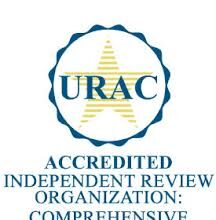I read with interest this morning an article by Erin McCann, Associate Editor at Healthcare IT News. Ms. McCann shines a bright light on the sad fact that under today’s reimbursement system, better care doesn’t always yield better business results.
I read with interest this morning an article by Erin McCann, Associate Editor at Healthcare IT News. Ms. McCann shines a bright light on the sad fact that under today’s reimbursement system, better care doesn’t always yield better business results. That’s because healthcare organizations aren’t incentivized to eliminate profitable procedures (tests, medical imaging, and surgeries) that may not benefit patients. And under the way most hospitals and clinicians are paid today, why would we expect them to do otherwise?
 The article was timely since just yesterday I met with executives of a very large, not-for-profit multihospital system at our Microsoft briefing center in Redmond. Despite having all the technology needed to provide health services in entirely new and more efficient ways, the hospital system finds itself incapable of implementing and using many of these technologies and solutions. First and foremost they, like most American hospitals, are in the midst of implementing an EMR/HIS solution upgrade, in this case across multiple facilities. It’s an absolutely essential initiative that lays the ground work for a more digital future. It also comes at a cost that approaches a billion dollars. What concerns me is that, while necessary, the system-wide EMR/HIS initiative doesn’t by itself change medical practice all that much if at all. And so long as the system is held hostage to a payment system that rewards volume rather than value, it’s quite possible that much of the technology they already own that could truly transform the way they deliver care, will never get used. If they only get paid for doing things the way they’ve always done them, why would we expect change?
The article was timely since just yesterday I met with executives of a very large, not-for-profit multihospital system at our Microsoft briefing center in Redmond. Despite having all the technology needed to provide health services in entirely new and more efficient ways, the hospital system finds itself incapable of implementing and using many of these technologies and solutions. First and foremost they, like most American hospitals, are in the midst of implementing an EMR/HIS solution upgrade, in this case across multiple facilities. It’s an absolutely essential initiative that lays the ground work for a more digital future. It also comes at a cost that approaches a billion dollars. What concerns me is that, while necessary, the system-wide EMR/HIS initiative doesn’t by itself change medical practice all that much if at all. And so long as the system is held hostage to a payment system that rewards volume rather than value, it’s quite possible that much of the technology they already own that could truly transform the way they deliver care, will never get used. If they only get paid for doing things the way they’ve always done them, why would we expect change?
This is a conundrum not just for American hospitals and clinics. I’ve seen it play out in many other countries around the world, including health systems that we Americans might consider quite socialized. Even in these countries there is often a disconnect between the payer of care (government plus or minus private insurance) and the organizations and clinicians who deliver care. One would think that if government could save money by delivering health services more efficiently, technologies that would make that happen would be rapidly deployed. But that is not the case often because the organizations and clinicians delivering the services are incentivized (paid) to keep doing things the way they’ve always done them.
 I recall a well-known, high quality health system here in the Pacific Northwest that wanted to deliver better, more cost effective back and joint care to their patients. The objective was to not only provide better care to their patients, but also lower costs to major self-insured employers in the area. Back and joint problems are a leading cause of time loss from work, disability, and high medical costs. The doctors discovered that t
I recall a well-known, high quality health system here in the Pacific Northwest that wanted to deliver better, more cost effective back and joint care to their patients. The objective was to not only provide better care to their patients, but also lower costs to major self-insured employers in the area. Back and joint problems are a leading cause of time loss from work, disability, and high medical costs. The doctors discovered that t he majority of the patients they were seeing didn’t need expensive imaging studies. Instead they focused on rapid clinical evaluation and immediate referral to high quality, intensive physical therapy. In other words, they were doing what they knew was best for patients, and it turns out, their employers. Of course, there was a significant cost to the health system for doing the right thing. That cost came from trading a high volume in very lucrative imaging studies for much lower cost physical therapy sessions. The system initially lost a ton of money by doing the right thing.
he majority of the patients they were seeing didn’t need expensive imaging studies. Instead they focused on rapid clinical evaluation and immediate referral to high quality, intensive physical therapy. In other words, they were doing what they knew was best for patients, and it turns out, their employers. Of course, there was a significant cost to the health system for doing the right thing. That cost came from trading a high volume in very lucrative imaging studies for much lower cost physical therapy sessions. The system initially lost a ton of money by doing the right thing.
Most hospitals and health systems operate on pretty thin margins. They don’t have the luxury of killing a cash cow–being able to turn away paying customers (patients) from expensive tests and procedures. By doing so, they are literally shooting themselves in the foot.
Nothing much will change until payors (public and private) around the world remove the perverse incentives that stop innovation in healthcare delivery dead in its tracks. We’ll never be able to transform health and healthcare with eHealth, mHealth, tele-health, telemedicine, and so many other technologies that could help clinicians deliver higher quality, more convenient and cost effective care until we finally and fully address this all too common conundrum in healthcare.






